40 github issue template labels
Get started with GitHub Issue Forms - Beyond Code Every form must include a name, a description that is shown at the template selection for the user and a body element in which the actual inputs are placed. You can also add assignees to the form that will automatically be assigned to the issue as soon as created, as well as labels and a pre-populated title. Welcome | Issue Template - gh-community.github.io options: - 1. - 2. - All of them. You can now preview the template, as a contributor will be able to see it, by looking at the file in the repository blob viewer: All valid templates will be selectable by contributors via the Issue Chooser: Selecting that item from the Issue Chooser will bring them to the form view: Upon form submission, their ...
Supported Configuration Options & Common Errors for Issue Forms labels (Array or String): This issue will automatically receive these labels upon creation. Can be array of labels or comma-delimited string, e.g. "bug,needs-triage" title (String): Default title that will be pre-populated in the issue submission form. body (Array): Definition of user inputs. Input type configuration options Markdown

Github issue template labels
Codeless Contributions with GitHub Issue Forms - Stefan Buck Let's break down the steps: A new issue has been created using the "Submit extension" Issue Form. A maintainer reviews and approves the issue by adding the merge label; A GitHub Workflow that listens for labeled issue event runs. 3.1. To avoid conflicts with other issues, a step condition checks whether the issue is labeled with merge; The GitHub Issue Parser runs and outputs the issue body in ... GitHub - bstarling/gh-labels-template: Simple GitHub issue label generator issue-labels-template Background In an attempt to make Data For Democracy projects as approachable as possible many of the projects decided to implement a standard GitHub label scheme. To ensure consistent naming and color properties across all projects I created a script that would do this automatically using the GitHub API. Usage Github issue form: add label based on dropdown - Stack Overflow For example I have the following bug template: name: Bug Report description: File a bug report labels: [triage] body: - type: dropdown id: bug-type attributes: label: Project multiple: true options: - API - WebUI validations: required: true How could I add a label "api" and/or "webui" based on the selection of the dropdown? github Share
Github issue template labels. Manually creating a single issue template for your repository Adding an issue template On GitHub.com, navigate to the main page of the repository. Above the list of files, using the Add file drop-down, click Create new file . In the file name field: To make your issue template visible in the repository's root directory, type the name of your issue_template. For example, issue_template.md . Best Practices for Using GitHub Issues - Rewind You can now customize GitHub's default issue templates and add more templates to match your team's preferences. To do this, use the template builder described above or edit template files manually. Issue template files are YAML files that are stored in your repository in the .github/ISSUE_TEMPLATE folder: Managing labels - GitHub Docs Creating a label Anyone with write access to a repository can create a label. On GitHub.com, navigate to the main page of the repository. Under your repository name, click Issues or Pull requests . Above the list of issues or pull requests, click Labels . To the right of the search field, click New label. GitHub - github/issue-labeler: An action for automatically labelling issues When you reach a point where you'd like to update your labels and regular expressions and it could cause a conflict with historic issues, simply update your issue template to include issue_labeler_regex_version=2 and create the file .github/labeler-v2.yml. The issue will automatically be matched to the correct set of regular expressions.
issue-templates · GitHub Topics · GitHub github issue-templates Updated on Sep 19 Improve this page Add a description, image, and links to the issue-templates topic page so that developers can more easily learn about it. Curate this topic Add this topic to your repo To associate your repository with the issue-templates topic, visit your repo's landing page and select "manage topics." Usage: Issue and Pull Request templates - Docs - Gitea Gitea supports adding templates to the main branch of the repository so that they can autopopulate the form when users are creating issues and pull requests. This will cut down on the initial back and forth of getting some clarifying details. Possible file names for issue templates: ISSUE_TEMPLATE.md issue_template.md .gitea/ISSUE_TEMPLATE.md github issue template example - fulbrightsrilanka.com Each entry in the Community Template Gallery will link to the Issues section of the template's GitHub repository so that users can let you know if they find a bug. Launching Visual Studio Code. If you are an alpha user, please start a Discussion in the Issue Forms Feedback repository!. Update: GitHub now also supports multiple issue templates. Syntax for issue forms - GitHub Docs You can create custom issue forms by adding a YAML form definition file to the /.github/ISSUE_TEMPLATE folder in your repository. If you're new to YAML and want to learn more, see " Learn YAML in Y minutes ." You can define different input types, validations, default assignees, and default labels for your issue forms.
Issue and Pull Request templates | The GitHub Blog This is the first of many improvements to Issues and Pull Requests that we're working on based on feedback from the community. To add an Issue template to a repository create a file called ISSUE_TEMPLATE in the root directory. A file extension is optional, but Markdown files (.md) are supported. Markdown support makes it easy to add things ... GitHub issue templates and YAML - My Zettelkasten --- labels: bug, 'triage: needed' --- failed to parse and resulted in the templates being ignored by GitHub. I've fixed the YAML to this: --- labels: 'bug, triage: needed' --- and it started working in my test repo. Still kinda mad that GitHub didn't give an error or warning that the frontmatter was invalid :/ 2020-10-24 GitHub - stevemao/github-issue-templates: A collection of GitHub issue ... Manually creating a single issue template for your repository 10+ templates for you to pick! Find your issue/PR templates, and just grab and go. Inspired by excellent GitHub projects that use issue and pull request templates. Templates here are either copied from or modified based on real projects on GitHub. A GitHub Issue Template for Your Projects - Embedded Artistry Create a file named ISSUE_TEMPLATE and place it one of three locations: The root of your project .github folder docs folder An extension is optional, and GitHub supports Markdown ( .md ). I've chosen to create a Markdown template so you can use features like Markdown formatting, @-mentions, and task lists.
GitHub Labels that are logical, colorful and sensible How It Works. github-label-sync is used to synchronize your GitHub labels with as few destructive operations as possible - similar labels get renamed.; The label config is loaded via path or URL, or more specifically; the config file supplied by @seantrane/github-label-presets.; The github-label-sync -l ' ' ${GITHUB_NAME}/${REPO} command is run to have the label config ...
Adding labels to issues - GitHub Docs Customize the parameters in your workflow file: Change the value for add-labels to the list of labels that you want to add to the issue. Separate multiple labels with commas. For example, "help wanted, good first issue". For more information about labels, see " Managing labels ." Commit your workflow file to the default branch of your repository.
Description templates | GitLab Create a new Markdown ( .md) file inside the .gitlab/issue_templates/ directory in your repository. To create an issue description template: On the top bar, select Main menu > Projects and find your project. On the left sidebar, select Repository. Next to the default branch, select . Select New file.
Configuring issue templates for your repository - GitHub Docs Creating issue templates On GitHub.com, navigate to the main page of the repository. Under your repository name, click Settings . In the "Features" section, under "Issues," click Set up templates . Use the Add template drop-down menu, and click on the type of template you'd like to create.
ability to preset issue/pr title and label in templates #1252 - GitHub When a user uses the template to create a new issue, the title, labels, and assignees will be preselected. Title can be overridden, just as body can today. Users with write access to the repo will be able to modify the label and assignee selections before submitting the issue if they wish.
GitHub issue templates • Codewrecks Just go to project settings / features to configure them. Figure 1: Configure Issue Templates in GitHub Issue templates are simple, you just create a placeholder for the content, automatically assign a label and suggests how you want the content to be organized.
Github issue form: add label based on dropdown - Stack Overflow For example I have the following bug template: name: Bug Report description: File a bug report labels: [triage] body: - type: dropdown id: bug-type attributes: label: Project multiple: true options: - API - WebUI validations: required: true How could I add a label "api" and/or "webui" based on the selection of the dropdown? github Share
GitHub - bstarling/gh-labels-template: Simple GitHub issue label generator issue-labels-template Background In an attempt to make Data For Democracy projects as approachable as possible many of the projects decided to implement a standard GitHub label scheme. To ensure consistent naming and color properties across all projects I created a script that would do this automatically using the GitHub API. Usage
Codeless Contributions with GitHub Issue Forms - Stefan Buck Let's break down the steps: A new issue has been created using the "Submit extension" Issue Form. A maintainer reviews and approves the issue by adding the merge label; A GitHub Workflow that listens for labeled issue event runs. 3.1. To avoid conflicts with other issues, a step condition checks whether the issue is labeled with merge; The GitHub Issue Parser runs and outputs the issue body in ...


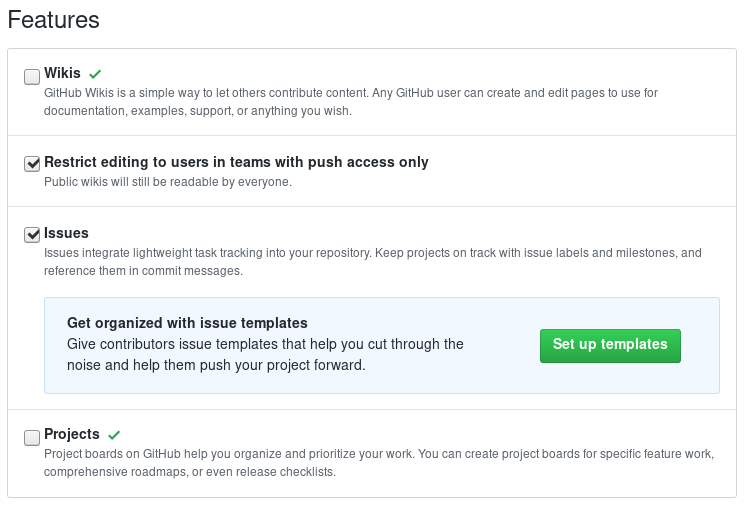
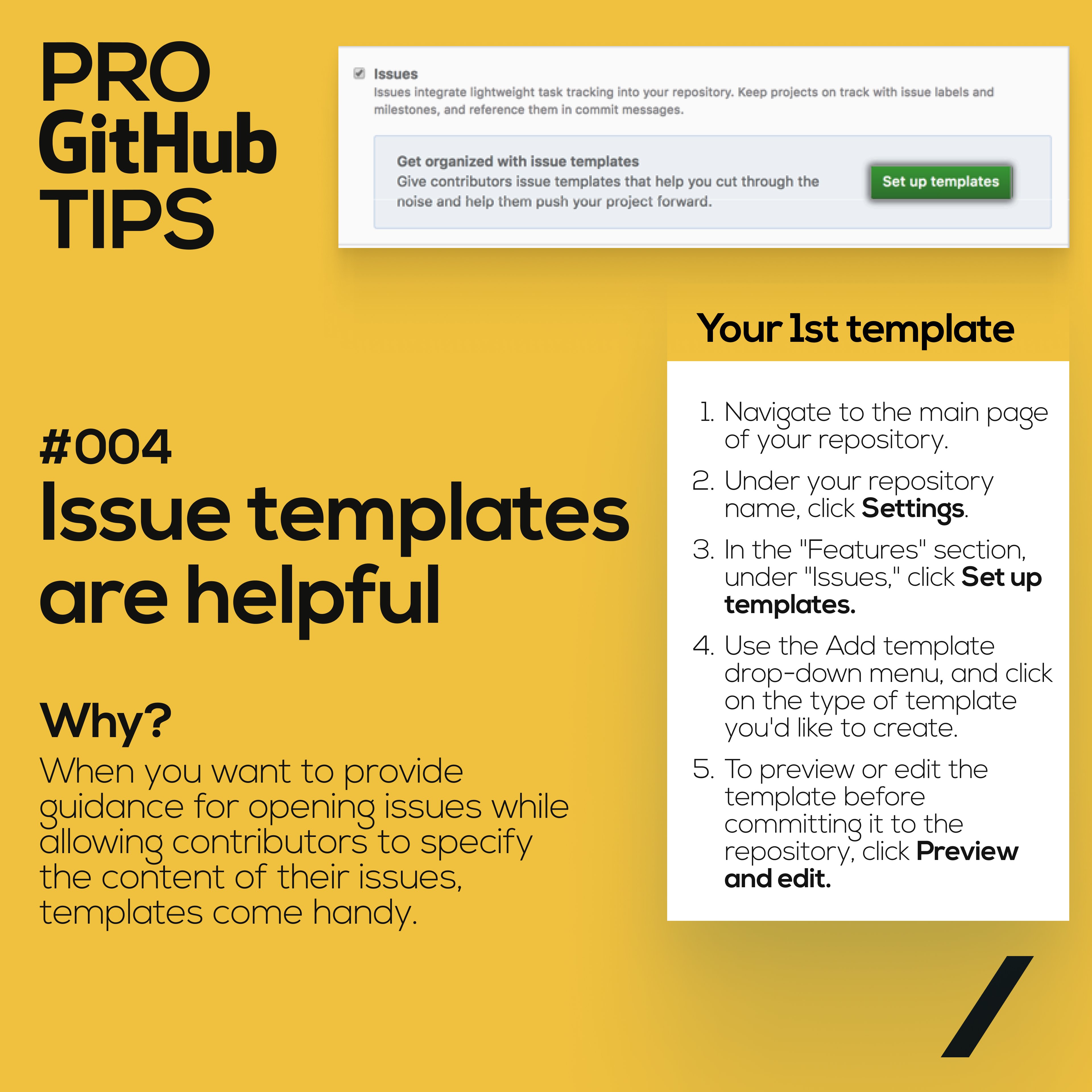



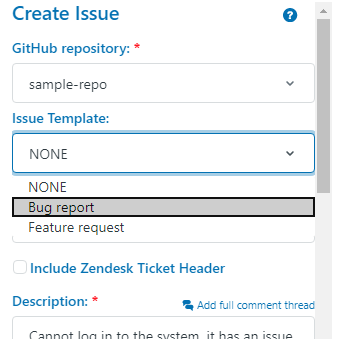
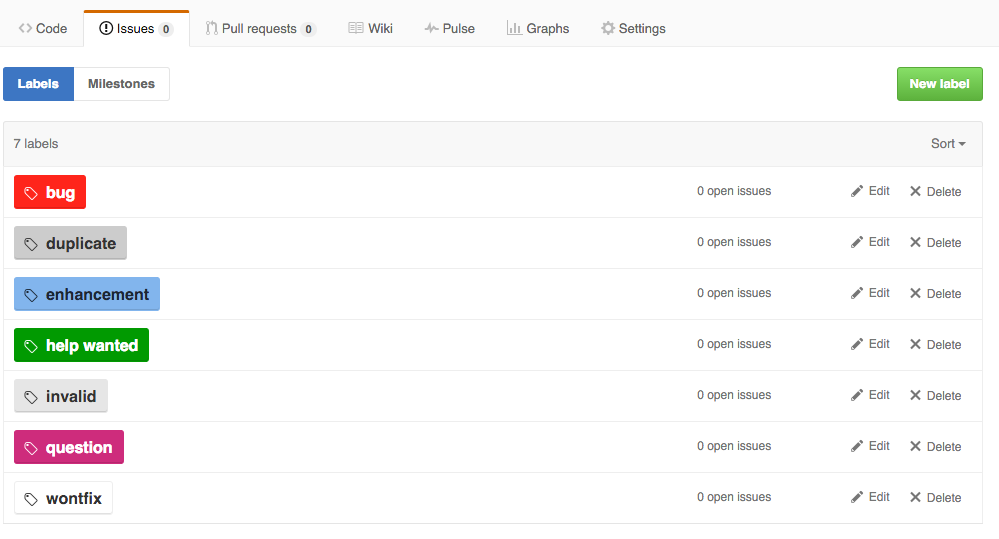

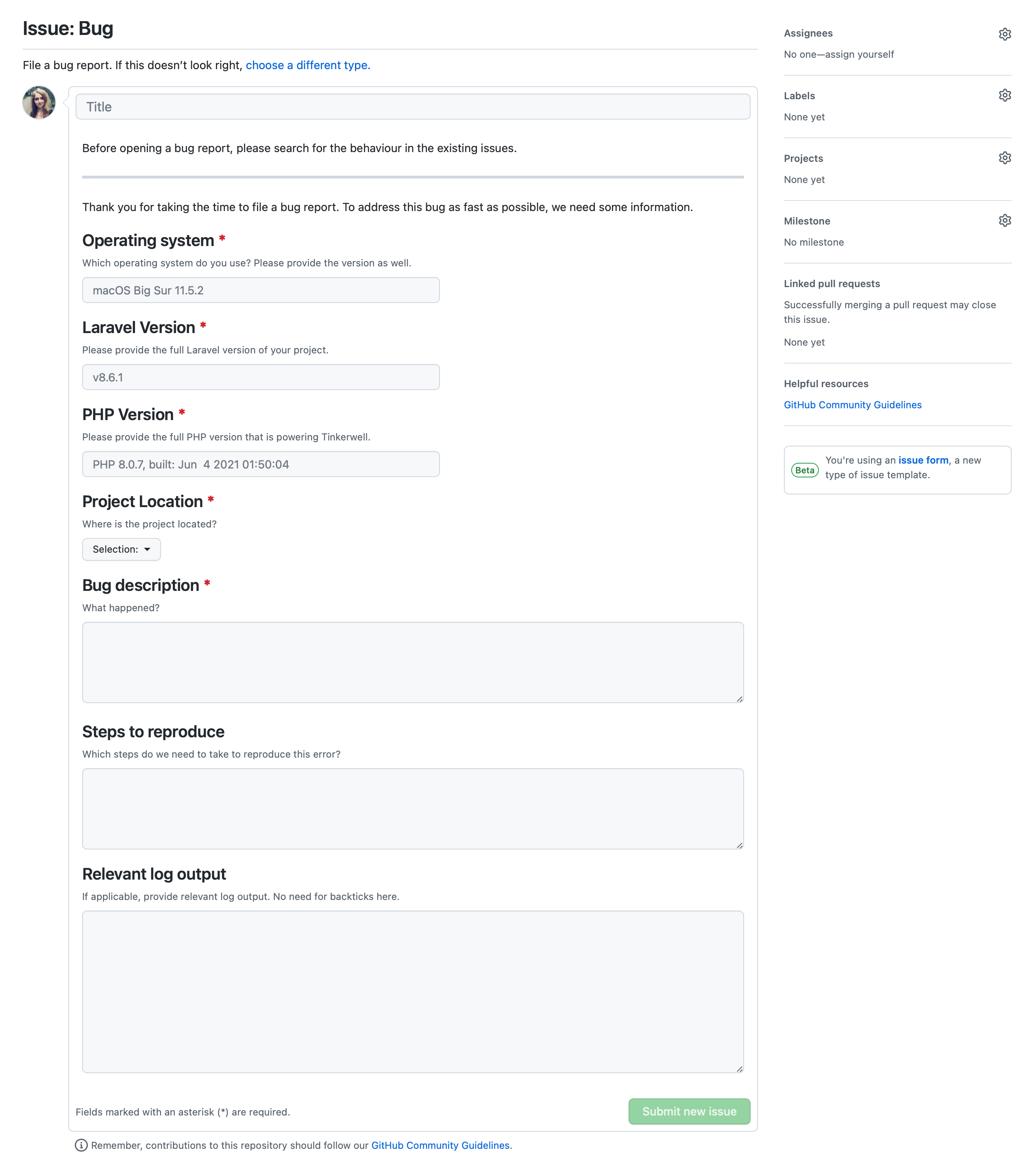
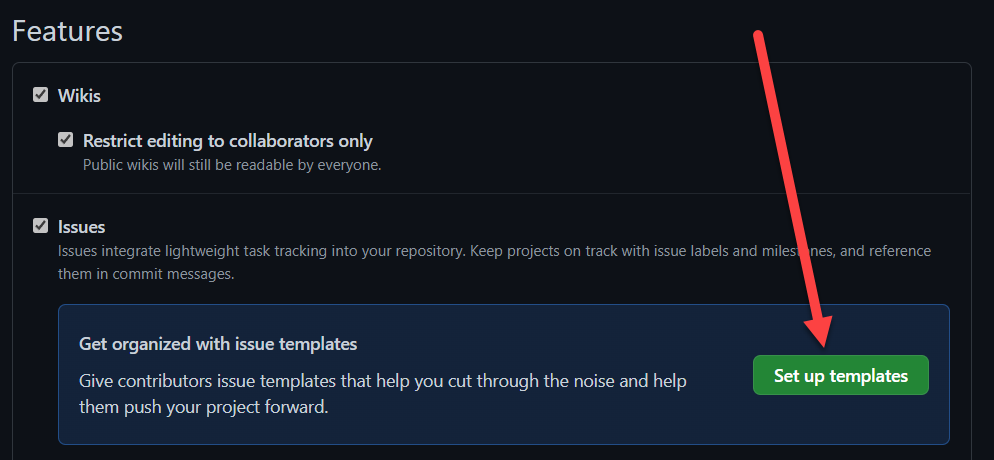

.png)

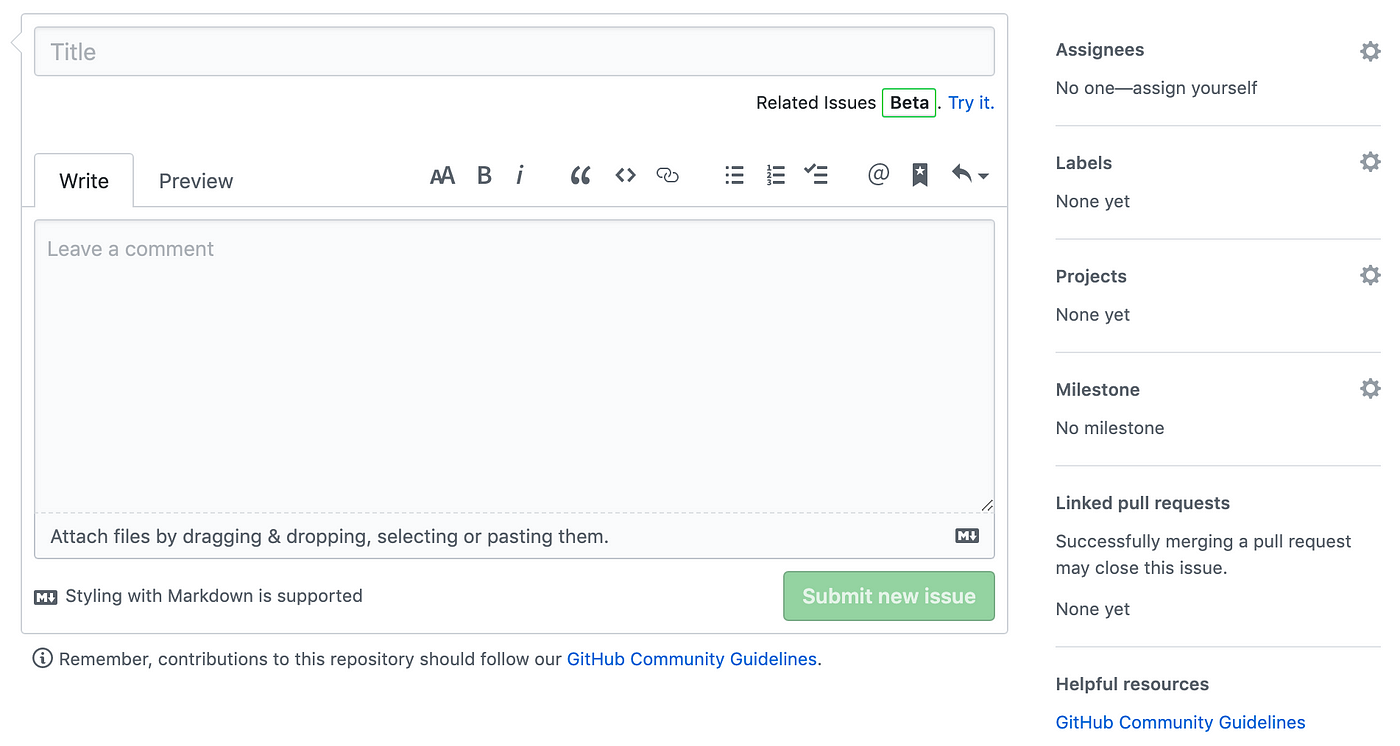
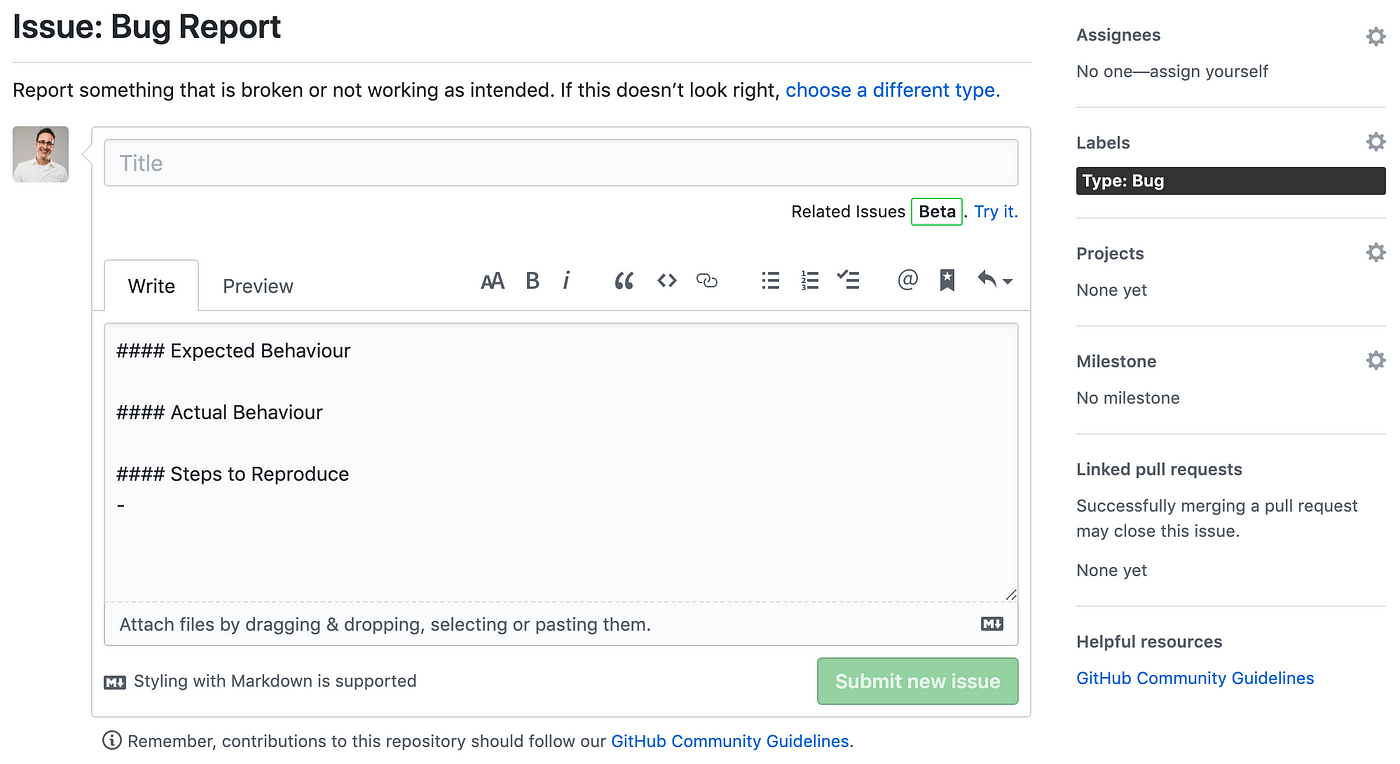


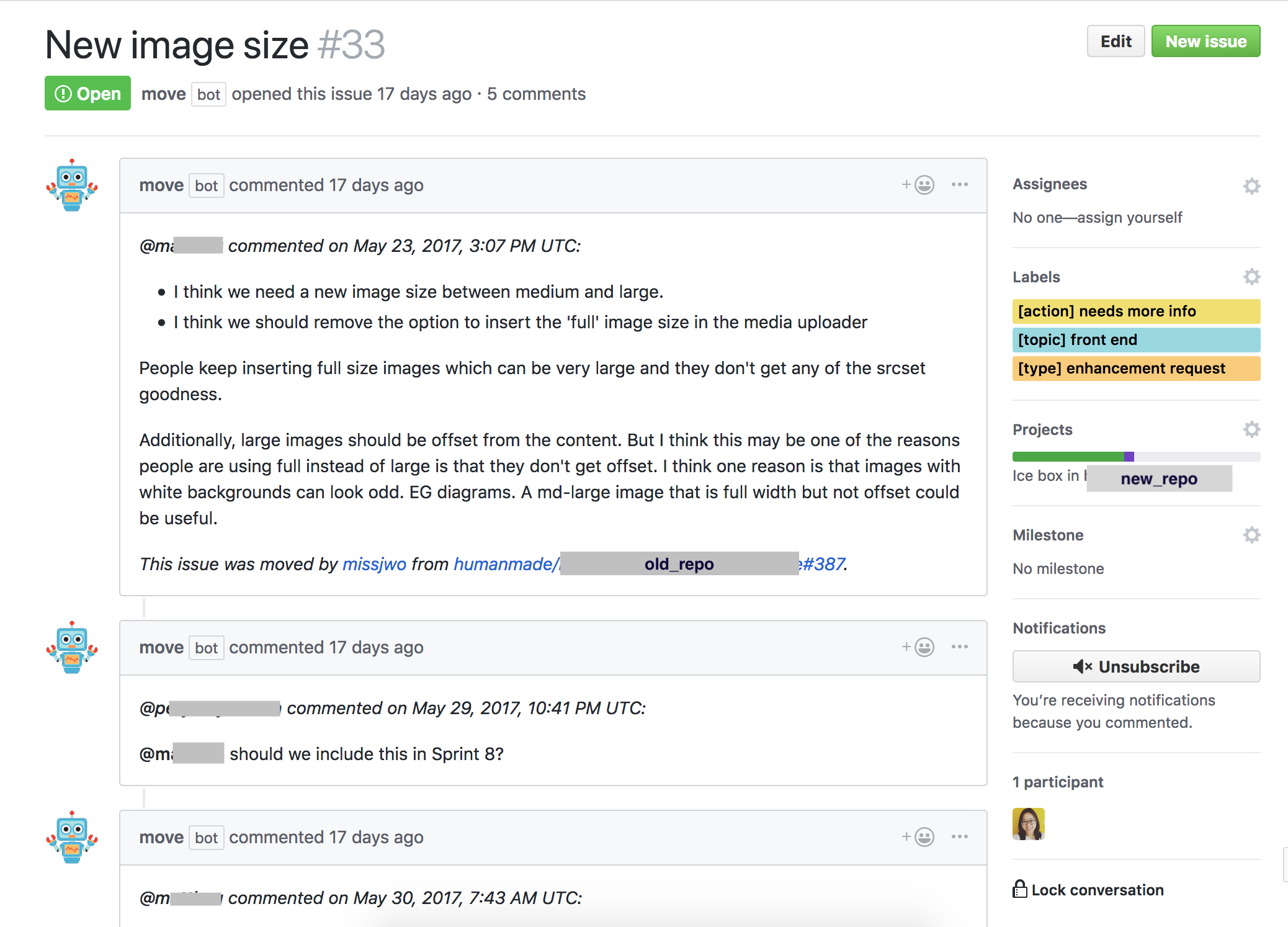

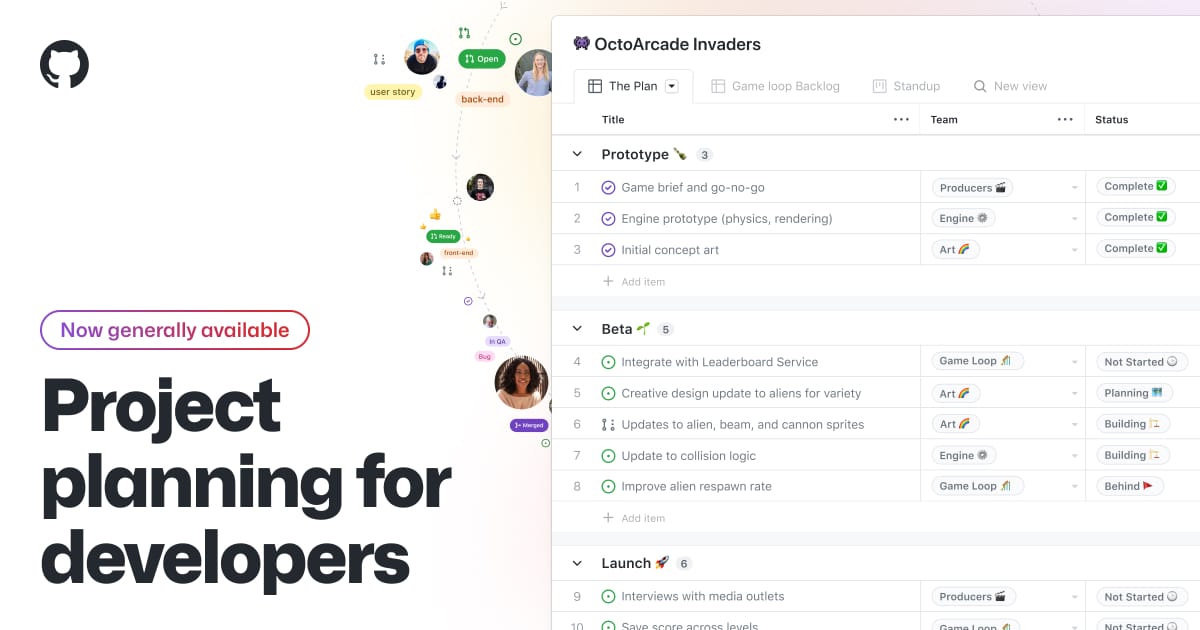


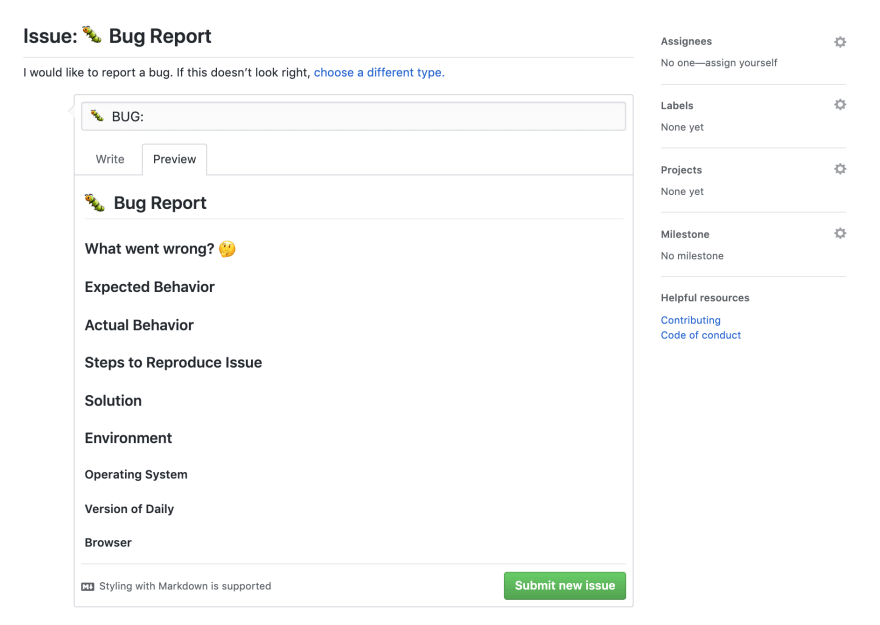




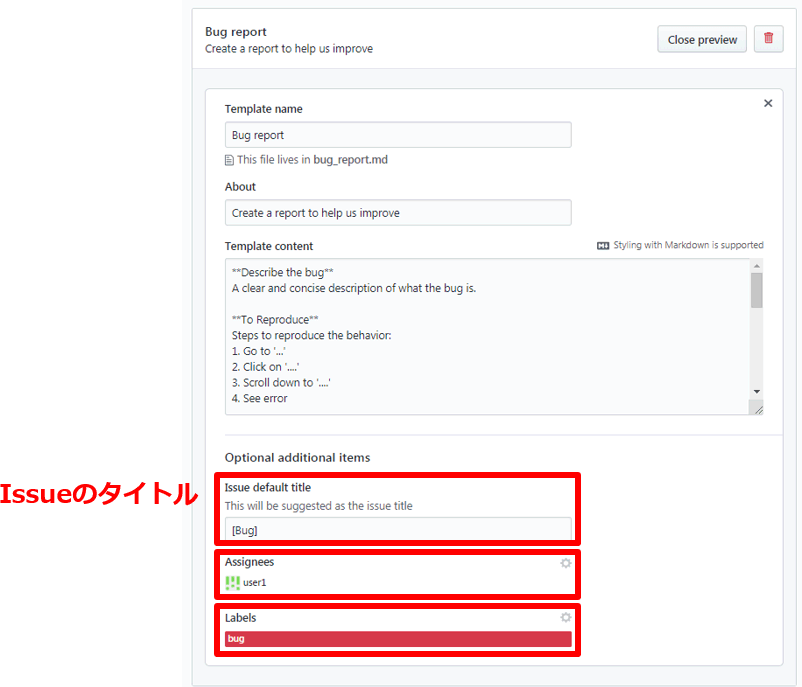
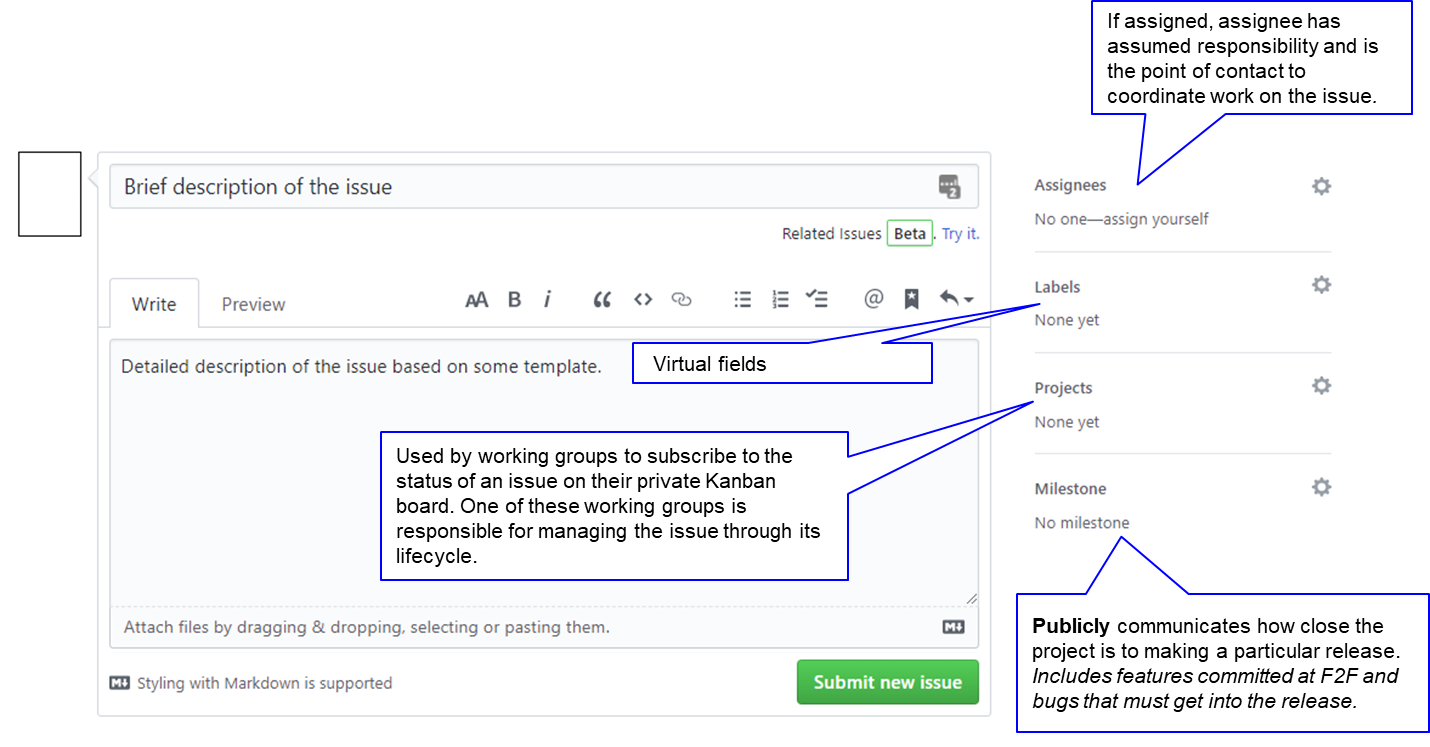

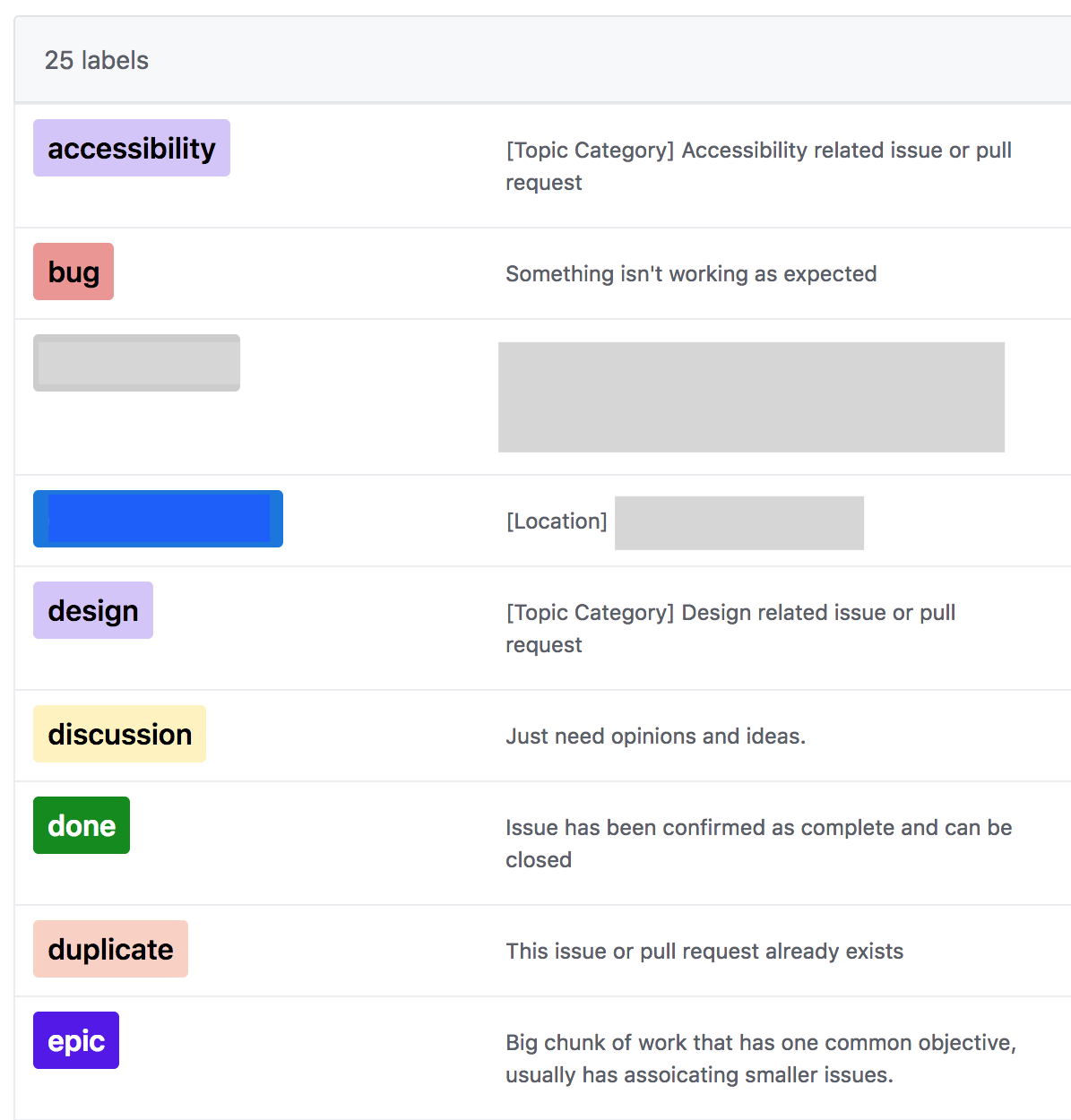
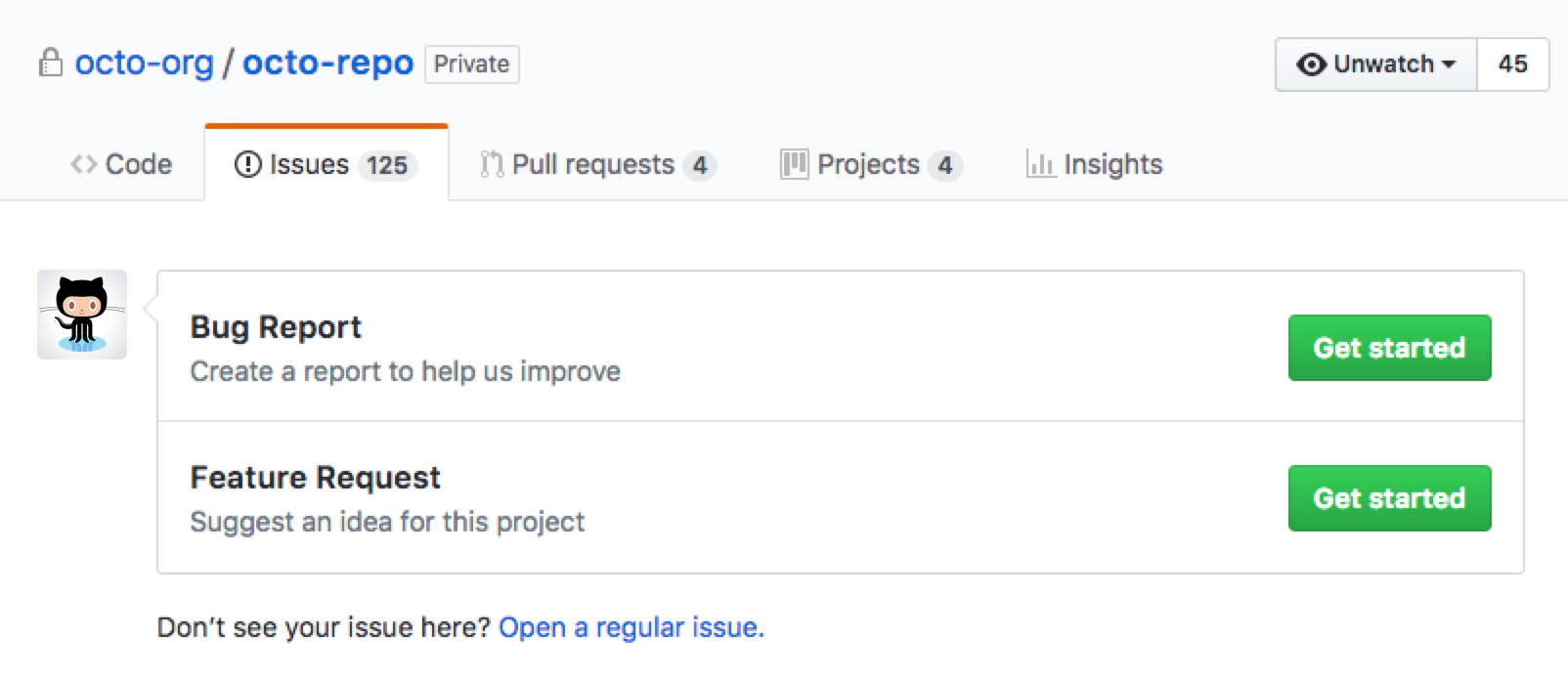
Post a Comment for "40 github issue template labels"